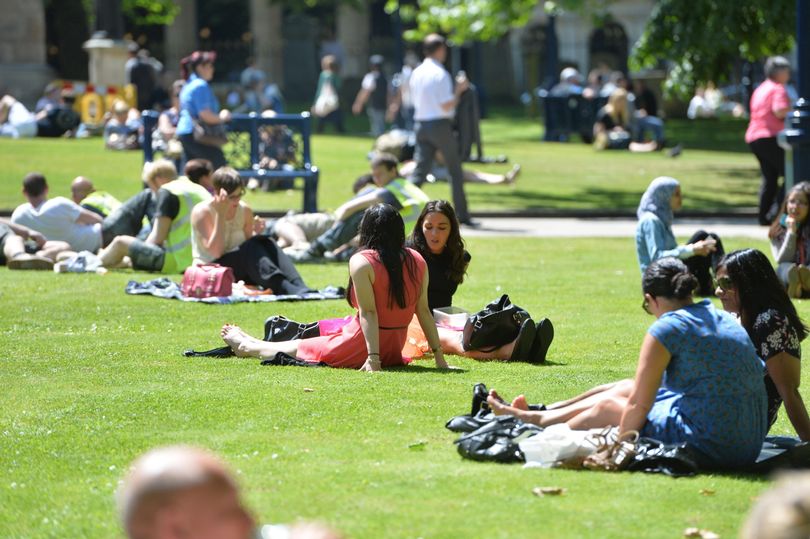Parts of the UK are predicted to be warmer than Greece in just a few days.
Temperatures are expected to soar to a balmy 18C on Wednesday, March 26.
It comes after Thursday, March 21, was the hottest day of the year so far.
READ MORE: Urgent ‘do not eat’ warning over kitchen staple that could be ‘life-threatening’
A band of high pressure from the Atlantic is set to send temperatures rising next week, with highs of 18C anticipated across soutjh east England and the east of England.
Temperatures of 16C are also expected as far north as Doncaster, South Yorkshire, forecasters at Ventusky say.
It means that some parts of the UK might even be warmer than some areas in Greece.
Don’t miss the biggest and breaking stories by signing up to the BirminghamLive newsletter here.
According to Ventusky weather maps, it will be rainy across Greece on Wednesday, especially in Larissa.
Temperatures of about 15C are predicted for most of Greece, with lows of 12C in the south, including on the island of Syrna.
Even popular tourist spot Ioannina is not expected to see anything higher than 14C.
Showers are anticipated to move east across Greece and become heaviest in the afternoon in and around Athens.
It could become thundery across the Epirus region, forecasters said.
In its long-range forecast for Wednesday, March 26, to Friday, April 4, the Met Office said: “The final week of March into the start of April looks to be characterised by a slowly evolving, but changeable weather pattern.
“Initially, a dry interlude is likely with spells of sunshine across many areas.
“With time, these drier conditions will become more favoured across the south.
“Further north and northwest, there is a greater chance of rain or showers at times, these accompanied by windier spells and a chance of gales for parts of the far northwest.
“There is a small chance that these wetter, more unsettled conditions could become more widespread for a time.
“Temperatures will probably pan out close to average overall, though chilly nights remain possible where clear skies coincide with light winds.”
